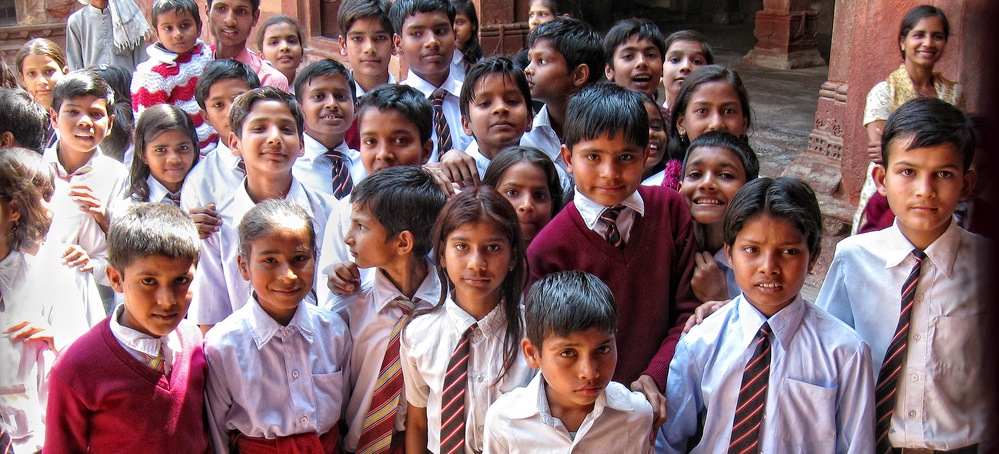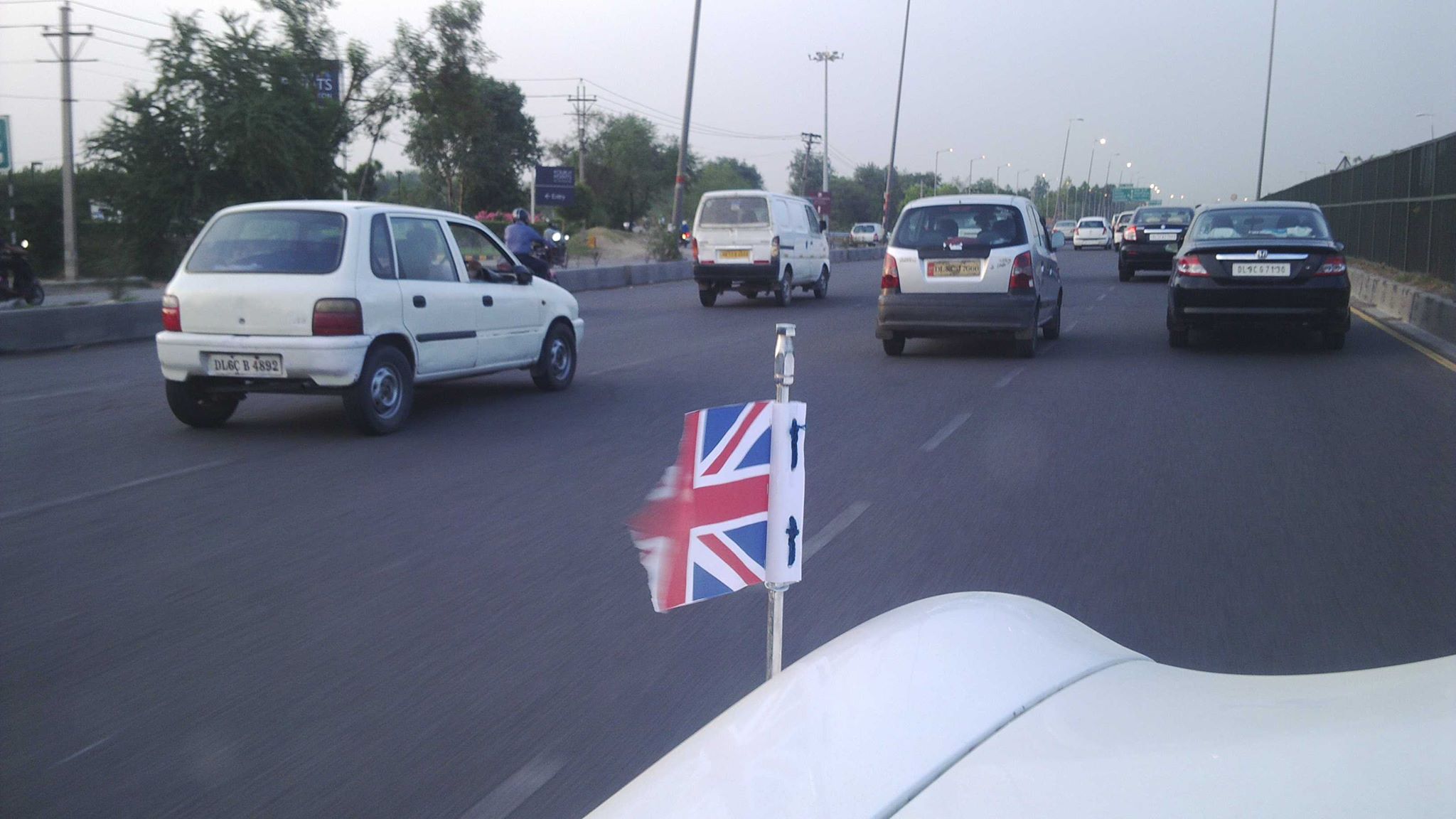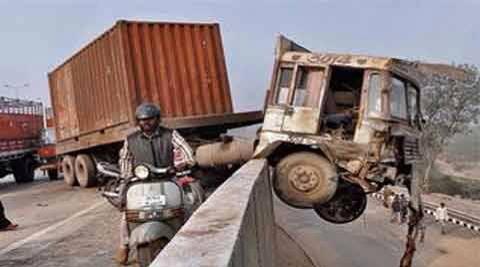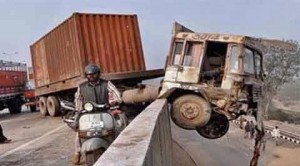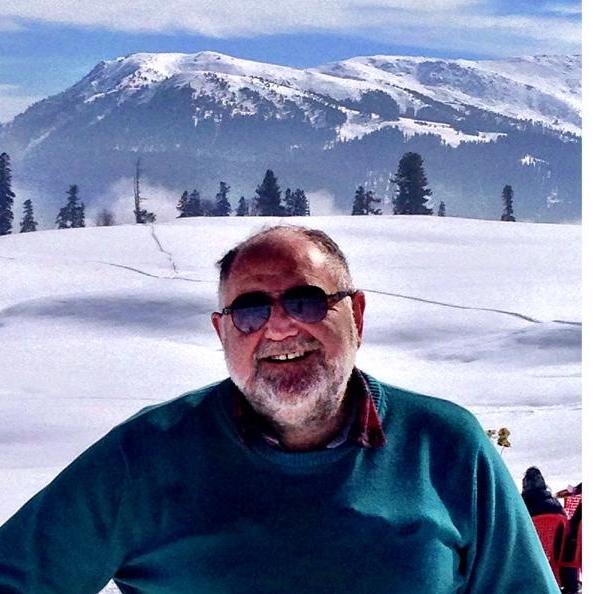The unquestioned gospel is that children are the future, and the future of life in India is bright indeed!
My route from home to rugby at 5.45am on a weekend morning takes me up the truck laden Sohna Road onto the massive NH8 inter-State highway. I follow this towards Delhi for about 12km, then at New Delhi Airport — my unofficial Delhi residence — I turn East through Mahipalpur towards the ground at Vasant Kunj.
Yesterday it was raining, lightly, and the roads were still pretty wet due to the weeks Monsoon downpours. The road at Malipalpur is a type of duel carriageway, but the inside lane is littered with debris and people so it can’t really be used. The area is pretty dower in appearance, although it does have a rather splendid Royal Enfield showroom with over 100 of these fine machines on display. Once you’ve left the NH8, for about a mile the road passes tightly pack rows of shops selling everything you can imagine. The area is not a slum area, well at first it’s not, but as you travel further East, huge slums are present on both sides of the road.
Yesterday morning, Saturday, the children of Malipalpur and some from the slum areas were waiting by the roadside for school buses, or the girls, in excess of 200 I would say were heading West on foot towards their schools. I guess I saw upwards of 500 children in that mile, and you know, they all looked immaculate. Standing roadside at just after 6AM on a Saturday, perfectly pressed shorts, shirts and the white on the girls collars sitting over their sky blue dresses was dazzlingly white. They looked perfect. I thought back to how I used to trek the mile to school every morning with half a school uniform looking like I’d been dragged through a hedge backwards. Indeed most of my school mates looked pretty much the same, many with uniform modifications which declared them as individuals in some way. These were children predominantly middle or upper working class from brick built homes with water, electricity, gardens and regularly emptied dustbins. We looked like a bunch of scarecrows.
So here we had children with nothing, many without running water, electricity, mains sewage and certainly no rubbish collection or gardens, making a supreme effort to go to school looking like they wanted and desperately needed the education on offer. They knew they were the lucky ones, many never get the chance to receive any formal education.
One of the things that really makes you realise how wonderful life in India is, is the incredible thirst for knowledge everyone has. They all want to know more so they stand a better chance of success. Last year whilst visiting the Taj I met a young lad, about six or seven who was trying to sell me a globe with snow in it. He spoke perfect English and attempted to negotiate a price. During the sale his attention was drawn to a German party, he broke off his sale to me and without drawing breath, began to negotiate in German. When he came back to me I asked him about his language skills and had he picked them up at school. No, was the answer. The nine languages he was able to negotiate in he had picked up from tourists as he had been selling keepsakes at the Taj since he was two.
I know it’s a different world, and you cut the cloth to suit the economy, whichever economic environment you are brought up in. But what India has really heightened my awareness of is just how much of a waster I was at school. Having everything served up on a plate made me value it much less. Lots of attendance because I had to, not because I wanted to. How many people I wonder back home would change their perspective on Education and how important it is if they came out and witnessed the absolute passion here for education.
I wish I had my camera yesterday morning to snap a few of the tartans, the reds, the blues, the greens, the socks, shorts, tunics, everything, because I’m sure if I shared them you would all at least have some belief that the 250 million children of schooling age will be able to afford change to help India out of its poverty. The government claim that literacy levels in India are around 70% but I think this is optimistic. However, with the right will — and trust me the will is here — over the next 10 years this Country should make massive inroads to easing its domestic problems.
I love India.
